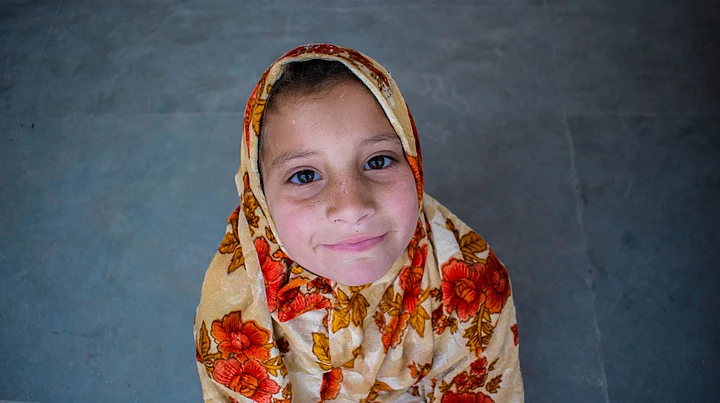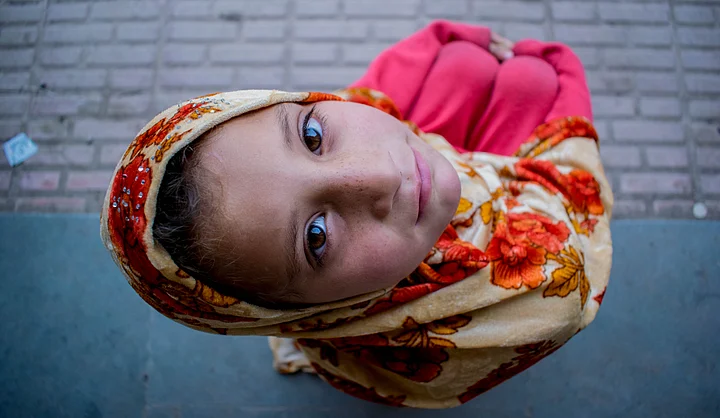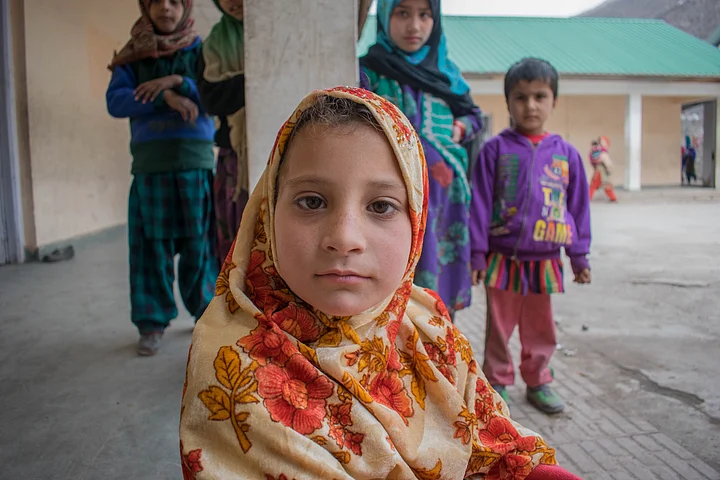Some 110 kilometres from Srinagar, a deceptive calm prevailing over the frontier Uri town in northern Kashmir is betraying a sense of the possible war – distressing the townspeople here till last week. As the last gun has already fallen silent, the displaced people have been sent back home on Zero Line on Line of Control (LoC), where they were driven out amid raining shells on 22 February. But before they could hesitatingly return to their roots, some 250 frontier families would talk about their uncertain fate on the LoC, where they live amid hostilities between Indo-Pak frontier forces.
Falling inside LoC fencing, these families of Uri’s four villages — Charunda, Balkot, Silikot and Tilawadhi — lately took a temporary refuge inside the Government Girls Higher Secondary School, Uri.
The mood inside the educational campus-turned-relief camp was solemn. Every new person who walked into the camp was being confused with a journalist. People, it seemed, had lot to talk about. But most importantly, they wanted government to relocate them—“as soon as possible”—as they “can’t afford to see their loved ones and lifetime labour of love being wrecked in a matter of minutes”.
Inside the camp, a young man named Hassan Kohli wanted someone to hear his ordeal. He would break into anxious monologues, frantically speaking about his sudden displacement.
Talking about the befallen tragedy on his tribe, the 26-year-old said, “Back in 2012, when I was busy attending my brother-in-law’s wedding, the shelling at once, turned our merriment into mourning. That day returned to haunt us recently, when shelling forced us out.”
“Throughout our lives, we have seen and been left battered by the hostilities between India and Pakistan troopers on LoC,” said Ghulam Mohammad Gani, 55, of Balkoot village, while complaining about uncertainty of life in the military-dominated zone. “While we grew up as disturbed tribe that couldn’t excel beyond a point in life, at least our children deserve to lead a trauma-free life now.”
“It took 40 men, including my husband Ala Khatana, to rescue me from my home the day shelling began in our village,” said Sakeena Begum, 45, of Charunda. While her fellow villagers ran away amid shelling, she couldn’t.
“I can’t walk properly after a landmine devoured my leg in late 90s,” she said. “I was tilling my maize farm when the explosion took place.” Since then, she has been living dangerously on Zero Line, where run for cover means surviving another day.
“Our men and women have lost their limbs either in shelling or mined explosives on Zero Line,” said Mohammad Lateef, 61, of Charunda village. “Why is government taking so much of time to shift us? What are we, some experimental tools? Are they waiting for our total annihilation, or what?
“Our biggest worry now remains our children’s education. They don’t excel beyond class 10 because of the perpetual fear of life and death on the LoC.”
“At around 1pm on 22 February, as I ran for cover, I turned back and saw a shell wrecking my home,” said Riyaz Ahmad, 58, an elderly man sitting considerate in the middle of a relief camp in Uri, where some 250 frontier—displaced—families were taking a temporary refuge. “It took just one shell to destroy my investment of a lifetime,” Ahmad rued. “How I am supposed to take care of my five daughters and a son now?”
While expressing dismay over the fate of his cattle now, Ahmad said, “I’ve even lost my ration card and my younger daughter’s recently purchased class 10 books in this shelling. I don’t know how I am going to help my family survive now?”
While the weight of displacement hung on adults’ shoulders, children found some kind of freedom in the relief camp. Their world otherwise, starts and ends with LoC fencing, where they don’t have the luxury to play or walk beyond a line mined with explosives. The time at the relief camp allowed them to roam freely – without worrying about shells, mines or explosives.
The little Saiqa, just eight-years-old, spoke about her routine run while playing Kho Kho with her friends inside her courtyard in Charunda village on Zero Line. On 22 February, she was running again – but this time for her life, screaming while holding her equally terrified mother’s hand amid shelling. “We were all crying, while running from our homes,” she said, struggling between words and shyness inside the relief camp.
Already done with her winter vacation homework, the first grader was looking forward to attend her school before the sudden LoC flare-up forced her to take a refuge in the relief camp. “I don’t like here anymore,” she said. “I want to go back home.”
A class 10 student Sharbat Hussain of Charunda village explained the larger catch on Zero Line — often forcing students to run between class and courtyard amid shelling.
“How can one study in such situations?” asked Sharbat Hussain, 16. “One of my friends was declared unqualified in one of his subjects last year, simply because he couldn’t venture out to reach his examination centre that day amid shelling. And now, this shelling has once again terrorised us.”
“It takes us around four hours to reach school and five hours to return,” said Zahoor Ahmad, 15, a class 9 student. “This whole arduous process then discourages one to pursue higher education. We live in a big garrison where our lives are being controlled by military, and whenever they lock horns with Pakistan troopers, we suffer badly.”
“Most of us live anticipating the moment which lately forced us out of our village,” Manzoor Ahmad, 36, said, lapping his baby boy. “I live nearby the Indian Post, and any attack on it from the Pakistan side directly impacts my family. My children can’t come out because of the fear of firing.
“It’s only during the LoC flare-ups that government is reminded of us. They come and ask us to abandon everything and leave. Once the ‘normalcy’ returns, we become the forgotten lots all over again. That’s our life.”
Living inside the LoC fencing, where the life remains ‘normal’ till guns remain silent, these villagers now demand their shift from the Zero Line mined with explosives.
“Whenever Pakistan Rangers open fire at an Indian post located nearby our home, out of ten, only one fire hits the target, the rest shatter our residences,” said Mohammad Yaqoob, 55, of Balkoot village, sunning inside the relief camp. “Recently, when a shell landed inside my kitchen, my daughter had a narrow escape.”
Lately as shelling started, Seema, a Class 5 student from Charunda remained trapped inside her home along with mother for 24 hours. “We didn’t eat anything during that period,” Seema said, playing with her fingers. Later she was taken to the relief camp in an ambulance by her father.
Away from home, she wondered about many things — but mostly about her school in Lalimaar. Whether it would be the same or not remained her anguish.
It’s this sense of wonder and fear that determines life on Zero Line.
(At The Quint, we question everything. Play an active role in shaping our journalism by becoming a member today.)



